
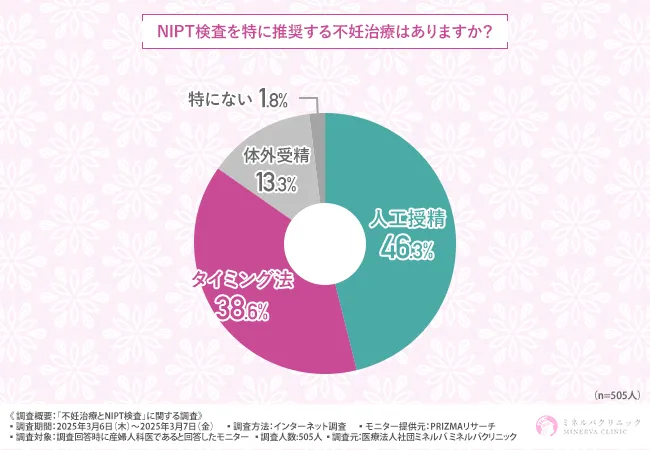
More Than 90% of Gynecologists Recommend NIPT for Expecting Mothers After Infertility Treatment
Importance of NIPT Testing in Infertility Treatments
Recent studies conducted by Minerva Medical Corporation based in Minato-ku, Tokyo, reveal that more than 90% of gynecologists recommend the Non-Invasive Prenatal Testing (NIPT) for women who conceive after undergoing infertility treatments. With an increasing number of women seeking fertility assistance, the role of NIPT as a prenatal diagnostic tool is garnering significant attention.
Understanding NIPT
NIPT is an advanced screening method that analyzes fetal DNA fragments present in a pregnant woman’s blood. It helps in evaluating potential chromosomal abnormalities and genetic diseases in the fetus. As more women are delaying pregnancies until later in life, particularly after infertility treatments, the importance of understanding this new methodology cannot be overstated.
Research Overview
Minerva Medical Corporation conducted an extensive survey between March 6 and March 7, 2025, targeting 505 practicing gynecologists. The results shed light on the doctors' perspectives regarding the correlation between infertility treatments and NIPT recommendations. The survey conducted by PRIZMA revealed that a considerable number of gynecologists believe NIPT should be offered as part of the prenatal care for women who have previously undergone infertility treatments.
Recommendations from Gynecologists
When asked which infertility treatments particularly warrant a recommendation for NIPT, 46.3% indicated artificial insemination, followed by 38.6% for timing methods and 13.3% for in vitro fertilization (IVF). The broad spectrum of recommendations suggests that NIPT is regarded as beneficial across all types of infertility treatments.
Critical Insights on Prenatal Diagnostics
Notably, when questioned whether women who have undergone preimplantation genetic diagnosis (PGD) should also receive NIPT, an overwhelming 93.9% affirmed this as a necessity. The rationale provided by gynecologists highlights that NIPT can accurately ascertain fetal health, enabling prospective parents to navigate their pregnancy with more peace of mind by alleviating anxiety. This further emphasizes the fundamental premise of NIPT—as an essential tool to foster a safer, more informed pregnancy experience.
The Case for Preconception Carrier Screening
A noteworthy aspect of the survey indicates that gynecologists largely support the idea of requiring preconception carrier screening, primarily before IVF procedures. The feedback received showed that 91.1% of doctors think it’s critical to perform genetic testing prior to undergoing IVF, reflecting concerns about potential genetic disorders affecting offspring.
- - Key Concerns: Many gynecologists articulated worries about the potential impacts on children from genetic conditions. Additionally, they believe such testing would allow couples to proceed with infertility treatments more informed and prepared.
Addressing the Risk Factors
The survey also explored whether there is a difference in the rates of NIPT testing between women who conceive naturally and those who become pregnant following infertility treatments. The results revealed that 46.1% of gynecologists believe women who have undergone infertility treatments are more likely to get tested compared to 43.3% for those who conceived naturally. This indicates a higher inclination among those from infertility backgrounds to utilize NIPT due to understood risks associated with advanced maternal age and fertility history.
Future Considerations in Prenatal Care
While exploring the best time for NIPT, the survey concluded that most gynecologists prefer testing between the 6th to 9th weeks of pregnancy.
Conclusion
The survey results demonstrate a clear consensus among gynecologists emphasizing the relevance of NIPT for expectant mothers, especially those who have navigated through infertility challenges. With nearly all doctors recommending NIPT, it becomes a fundamental consideration in prenatal care. Given the increased risks associated with advanced maternal age and pregnancies following infertility treatments, proactive testing is pivotal for both emotional and physical well-being. Women considering or undergoing infertility treatments are strongly encouraged to consult with their gynecologists about the importance of NIPT to ensure a safer, more informed pregnancy journey.
Awareness and education on NIPT can significantly enhance the pregnancy experience, allowing expecting parents to welcome their little ones with confidence. For consultations on NIPT and comprehensive infertility care, Minerva Clinic stands ready to assist families on their journey towards parenthood.
For further information about NIPT and fertility services, visit Minerva Clinic.
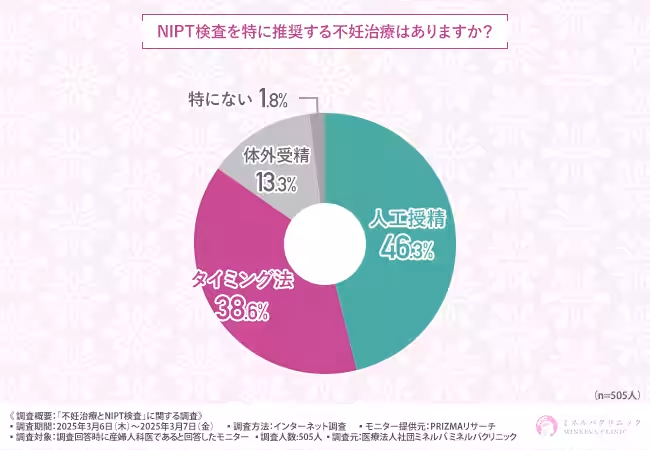
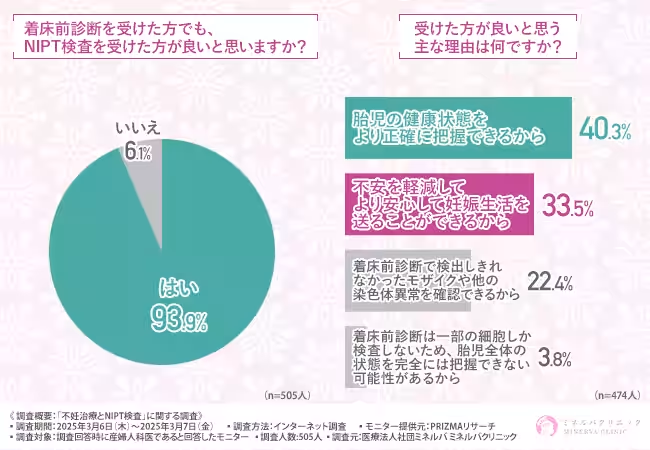
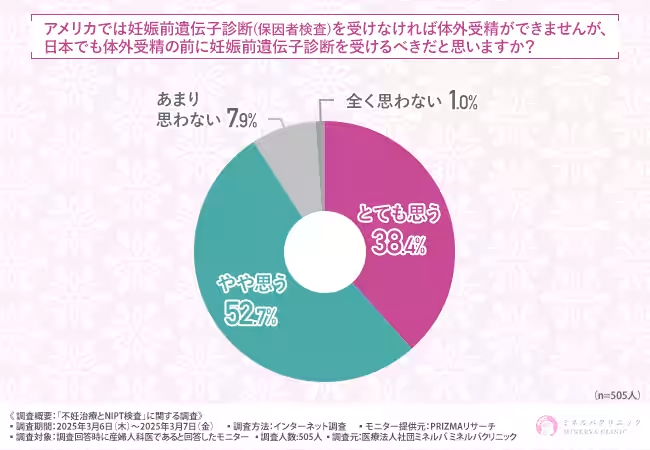
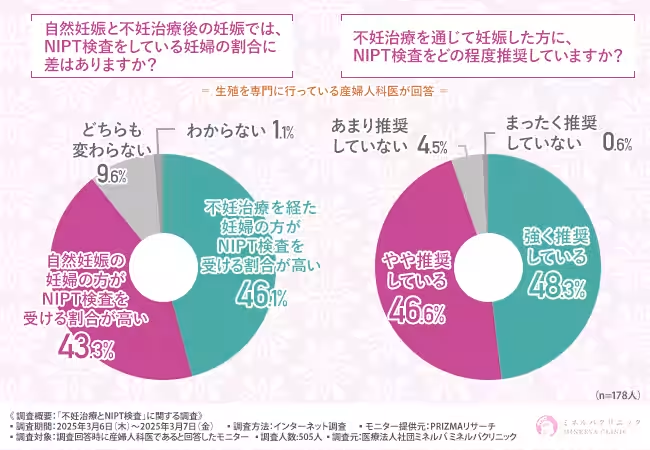


Topics Health)










【About Using Articles】
You can freely use the title and article content by linking to the page where the article is posted.
※ Images cannot be used.
【About Links】
Links are free to use.